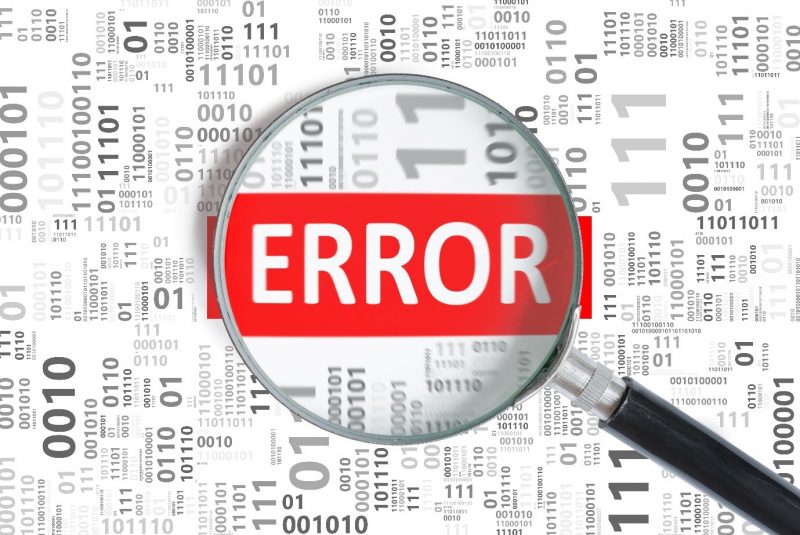
by John McCarthy Consulting Ltd. | Jul 3, 2019 | Blog, News
The Criminal Justice (Money Laundering and Terrorist Financing) Acts, 2010 to 2018 requires, among other things that:
- Each firm to appoint a person responsible for reporting to the authorities, known in the legislation as, the ‘designated person’ or otherwise better known as the ‘Money Laundering Reporting Officer’ (MLRO), a term not mentioned in the law;
- Each firm to have written AML Policies Controls & Procedures (PCP’s) that are updated regularly in line with changes in legislation, professional accountancy guidelines, persuasive guidance from external regulatory agencies like the Department of Justice and Finance and the Central Bank and the firm’s own unique experience in reporting AML incidents;
- Designated persons apply Customer Due Diligence (CDD) procedures to their clients in specific circumstances, which not only require the initial verification of client identity but also requires the ongoing monitoring of the business relationship with clients for suspicions of money laundering and terrorist financing;
Our new fully updated AML Policies & Procedures Manual fully deals with these requirements and is now available here.
It is fully updated for the Criminal Justice (Money Laundering and Terrorist Financing) Acts, 2010 to 2018 which came into force on 26 November 2018. It retails at €150+VAT.
See also our on-demand webinars on AML, accessible at any time.
Other webinar topics include Investment Property Accounting, FRS 105, Common Errors in FRS 102 Accounting and the latest on FRS 105 and company law, visit our online webinar training website. Once viewing is completed, customers will receive a CPD Certificate confirming their learning.

by John McCarthy Consulting Ltd. | Jun 27, 2019 | Blog, News
Some significant changes made in late 2018 to Irish AML legislation may have gone unnoticed. They need urgent attention as each designated entity is required, under Section 30A, to prepare a Business Risk Assessment. More on this in a subsequent blog.
The main changes introduced by the Criminal Justice (Money Laundering and Terrorist Financing) (Amendment) Act, 2018 are:
- Each designated entity is to carry out and document a Business Risk Assessment of the business/firm itself;
- Identify locally based Politically Exposed Persons (PEPs) and treat them (as well as defined family members) as high risk;
- Enhance the existing requirements for carrying out customer due diligence and require the maintenance of more detailed training records;
- For those businesses that deal in goods sold for cash, the threshold when AML identification of the customer is required, now starts at €10,000 (rather than €15,000 heretofore);
- The creation of the central register of beneficial owners in each EU country. In Ireland, this will be kept at the CRO. This register will be formally launched later in 2019. Watch for updates on the new launch date at https://rbo.gov.ie/.
Accountancy firms will need a set of procedures and checklists to deal with the new law. Our new fully updated AML Policies & Procedures Manual is now available here. It is fully updated for the Criminal Justice (Money Laundering and Terrorist Financing) Acts, 2010 to 2018 which came into force on 26 November 2018. It retails at €150+VAT.
For on-demand webinars on AML and developments in Investment Property Accounting, FRS 105, Common Errors in FRS 102 Accounting and the latest on FRS 105 and company law, visit our online webinar training website. Once viewing is completed, customers will receive a CPD Certificate confirming their learning.

by John McCarthy Consulting Ltd. | Jun 5, 2019 | Blog, News
In a recently issued audit report, the Irish Red Cross were criticised by their auditors over several matters including:
- how the charity manages restricted funds;
- how over €120,000 was deducted from four humanitarian appeal funds, as an administration charge without proper back-up to justify this;
- not all travel and subsistence claims were backed up by receipts; and
- for the lack of a proper purchase order system for spending money drawn down from overseas project funds.
For more on best practice in the Audit of Charities, see our up to date webinar here.
Also watch out for our new fully updated AML Policies & Procedures Manual coming later in June 2019 – includes the latest requirements of the Criminal Justice (Money Laundering and Terrorist Financing) Acts, 2010 to 2018 which came into force on 26 November 2018.
For on-demand webinars on AML and developments in Investment Property Accounting, FRS 105, Common Errors in FRS 102 Accounting and the latest on FRS 105 and company law, visit our online webinar training website. Once viewing is completed customers will receive a CPD Certificate confirming their learning.

by John McCarthy Consulting Ltd. | Jun 5, 2019 | Blog, News
As we wrote in a recent blog on the topic of AML supervision, the report by OPBAS – the Office for Professional Body Anti-Money Laundering Supervision slates the accountancy and legal professions for lax regulation of their sectors.
Although this is a UK regulator , its views are influential with regulators elsewhere. For accountants there is likely to be a tougher enforcement approach taken in future as a result of this stinging report. OPBAS found that in 2018, only half of professional bodies issued fines for AML failings. It was even less in 2017 at 27%.
OPBAS has called for the Professional Body Supervisors (PBSs) to share information as a way of cracking down on covert activity. Almost half of the 22 bodies do that now, but OPBAS called for 100% cooperation by all bodies.
Some professional bodies have no resources allocated to intelligence sharing while others have no clear responsibilities or systematic approach to using intelligence to inform decisions or supervisory and enforcement work. There was also evidence that suspicious activity reports had not been raised by the PBSs when they should have been.
OPBAS has called on all PBSs to undertake risk-based supervision of the professions i.e. focused on the riskiest types of business or clients like tax, conveyancing, company formation. The watchdog says this must be properly resourced, with leadership from the top, and robust enforcement outcomes, along with a positive uptake in intelligence sharing.
Read that full OPBAS report here. To get prepared for the more robust AML visits that are surely coming see our latest Anti-Money Money Laundering blog here.
Also watch out for our new fully updated AML Policies & Procedures Manual coming in June 2019 – fully updated for the Criminal Justice (Money Laundering and Terrorist Financing) Acts, 2010 to 2018 which came into force on 26 November 2018.
For on-demand webinars on AML and developments in Investment Property Accounting, FRS 105, Common Errors in FRS 102 Accounting and the latest on FRS 105 and company law, visit our online webinar training website. Once viewing is completed customers will receive a CPD Certificate confirming their learning.

by John McCarthy Consulting Ltd. | May 23, 2019 | Blog, News
The GDPR is in place one year on 25 May 2019. How up to date are you on the application of the new data protection rules? Try this quick question. Is ‘storing data’ included in the definition of the term ‘processing’ as far as the GDPR is concerned? True or False?
To find out the correct answer, watch our webinar called ‘GDPR for Accountants’ where you may download the slides and support materials, all for just €45. On successful completion, receive a CPD certificate for your newly acquired knowledge. Well done!
The webinar is 54 minutes long and covers the basics of data protection from an accountancy practice angle. It may be viewed anytime for up to a year from date of purchase and covers the following key areas:
- Background to the data protection legislation;
- The Six Principles of GDPR (or is it Seven?);
- Changes to data processing responsibilities;
- New/enhanced data subject rights;
- New data governance obligations;
- Data breaches and new notification requirements; and
- An Action Plan to get your compliance up to date.
There are 18 other webinars on various topics – also for €45 each, or you may purchase two at the same time for €80 or five for €190.
All our webinars are accessible at any time (for 12 months from date of purchase) here.
We have also prepared, ready to use, several engagement and representation letter templates (in Word format) for many types of assignment, which help reduce misunderstandings about engagement scope and liability. These are available to purchase online (bulk purchases of 5 or more templates attract a 20% discount), please click on the relevant links.
Some shown here may be of interest to you:

by John McCarthy Consulting Ltd. | May 14, 2019 | Blog, News
Revaluation gains on tangible fixed assets go through the Profit & Loss Account. True or False? The answer is ‘False’.
To find out where revaluation gains on tangible fixed assets are presented, see our webinar called ‘Common Errors in FRS 102 Accounting’ where you may download the slides and support materials, all for just €45. On successful completion, receive a CPD certificate for your newly acquired knowledge. Well done!
The webinar, is 51 minutes long, and may be viewed anytime for up to a year from date of purchase, covers the following key areas, among others:
- Directors’ loans – the new rules on amortisation since 1 January 2019;
- Investment property revaluations;
- Statement of Changes in Equity (SoCE);
- Tangible fixed assets revaluations;
- Depreciation not charged;
- Going concern and break-up;
- Deferred tax gone missing;
- Areas of judgement and estimation uncertainty;
- Turnover accounting policy;
- Stocks/inventory accounting policy; and
- Disclosing the functional currency.
There are 18 other webinars on various topics – also for €45 each, or you may purchase two at the same time for €80 or five for €190.
All our webinars are accessible at any time (for 12 months from date of purchase) here.
We have also prepared, ready to use, several engagement and representation letter templates (in Word format) for many types of assignment, which help reduce misunderstandings about engagement scope and liability. These are available to purchase online (bulk purchases of 5 or more templates attract a 20% discount), please click on the relevant links.
Our latest additions may be of interest to you:










